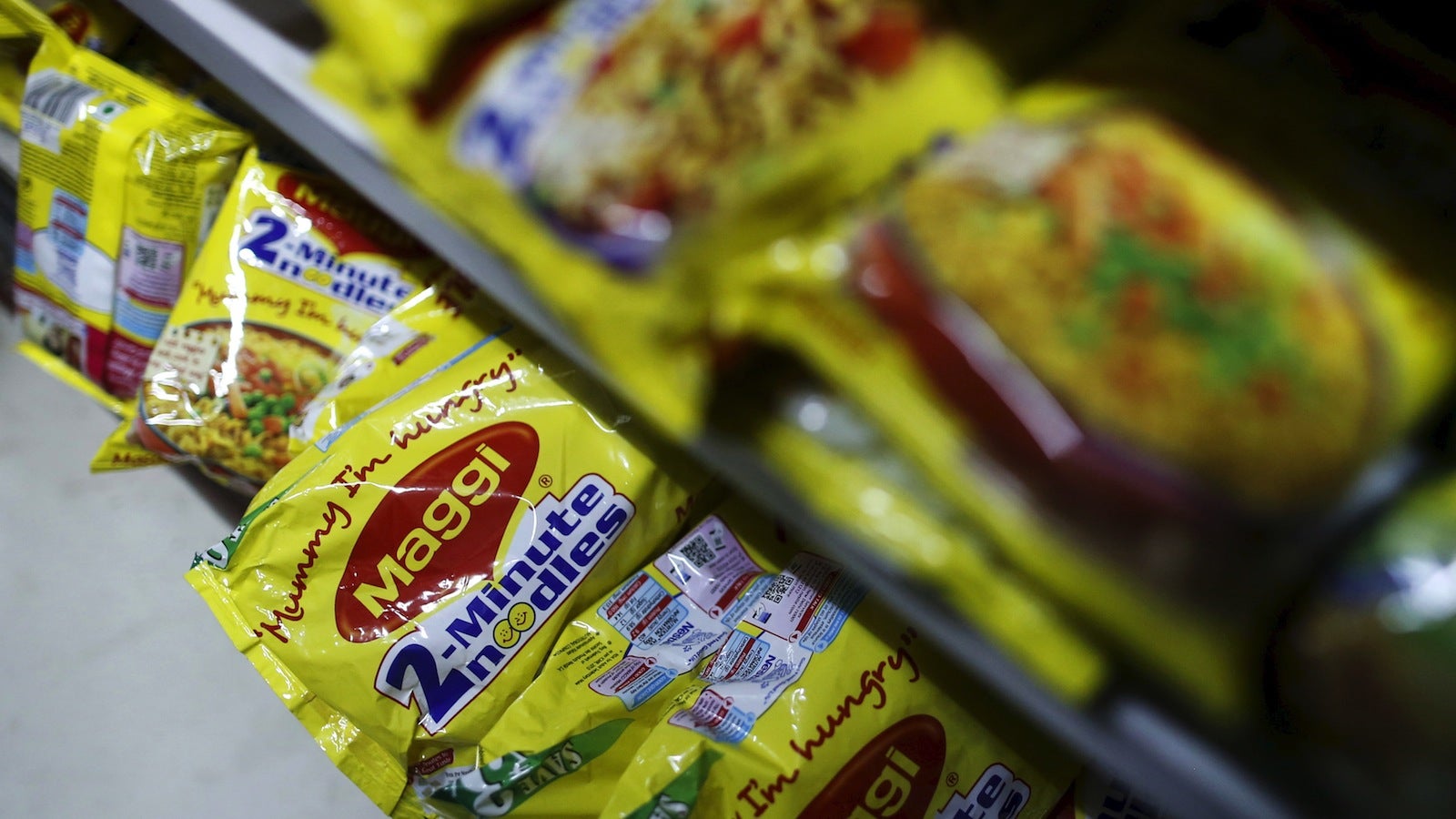Maggi noodles may soon be out of hot water—and on your plate
Indians rejoice: Maggi noodles may be back on the menu soon.


Indians rejoice: Maggi noodles may be back on the menu soon.
The Bombay High Court has ruled in favour of Nestle India in its appeal against the Food Safety and Standards Authority of India’s (FSSAI) June 5 ban on the manufacture and sale of the beloved instant noodle brand.
“Principles of natural justice have not been followed in announcing the ban,” the Bombay High Court said, according to NDTV.
Nestle India’s stock on the BSE jumped 4.19% in afternoon trade, as soon as the high court order was announced.
The Swiss food conglomerate found itself in hot water in May when the Food Safety and Drug Administration (FDA) in Uttar Pradesh discovered monosodium glutamate (MSG) and an excessive level of lead in some of the Maggi samples it tested. This snowballed into a nationwide scare, with many states subsequently banning the noodles.
In June, the FSSAI ordered Nestle to withdraw all nine varieties of the Maggi brand from Indian shelves, even as the company maintained that the noodles did not contain any harmful ingredients.
But now the Bombay High Court wants the noodles to be retested within the next six weeks at three laboratories in Hyderabad, Mohali and Jaipur. If the samples don’t contain levels of lead that exceed the prescribed amount, Nestle will be allowed to start making Maggi again in India.
This dramatic about-turn comes after regulators in the UK, Canada, Singapore, Australia and New Zealand all declared that the noodles were safe to eat, prompting heavy criticism over India’s handling of the Maggi case.
On his visit to India in June to combat the bad press, Nestle’s global CEO Paul Bulcke said that there was a lack of clarity on the manner in which the testing was carried out.
“We have 8,000 people all working to check safety of our products. In India, we have 400 people in seven laboratories doing millions of tests every year,” he said in a press conference in New Delhi.
On top of this, there were questions over the credibility of the labs used by the government for testing the noodles. In July, Nestle told the Bombay High Court that most of the labs used by the Indian authorities did not have the required accreditation from the National Accreditation Board for Testing and Calibration Laboratories (NABL).
Amidst the furore, India’s prime minister Narendra Modi advocated that the public remain calm. On Aug. 6, food and consumer affairs minister Ram Vilas Paswan said Modi had asked not to make unnecessary noise over issues such as the Maggi controversy till all facts came to light.
Earlier this week, the Indian government demanded $99 million in damages from Nestle India on behalf of consumers. It cited unfair trade practices and the sale of defective goods as the main reasons.
Costly controversy
For Nestle India—which generates about 30% of its revenue from Maggi—the ban was a major setback because the country is the second-largest market for the brand. Maggi commands a monopoly of the segment in India, with a 63% share of the market. In 2014, Nestle India clocked in sales worth $623 million across noodles, table sauces and other products, according to Euromonitor International.
The Swiss firm is already staring at losses worth Rs320 crore ($49.2 million) because of the product recall.
”These are broad estimates because it is impossible to calculate the final figure while the withdrawal is taking place,” the company said in a filing with stock exchanges in June.
“There will be additional costs to take into account, for example bringing back stock from the market, transporting the stock to destruction points, destruction costs, etc. The final figure will be confirmed at a later date,” the statement added.
But thanks to the Bombay High Court, some respite may be finally on the way.